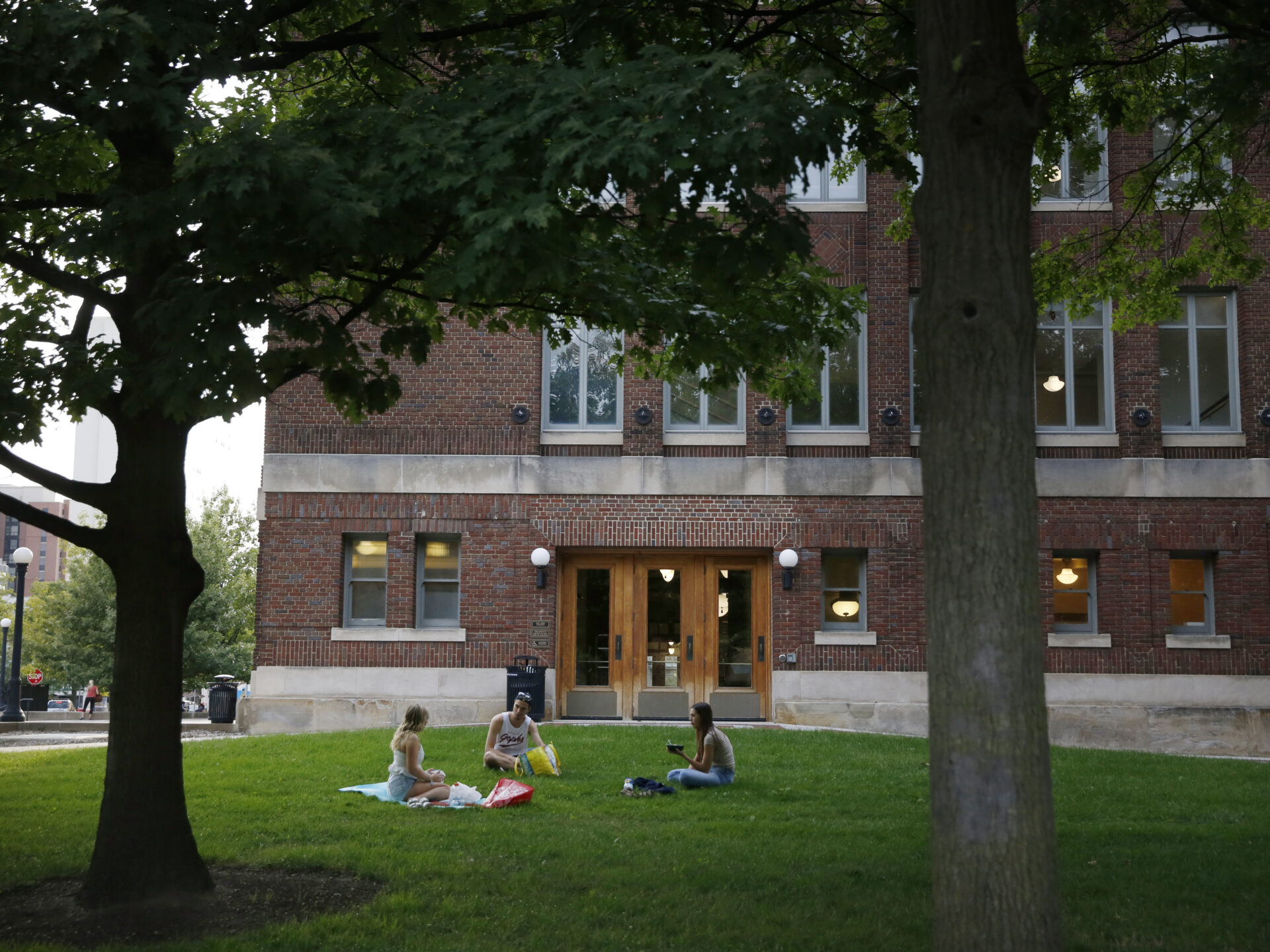Less than three percent of people raised in state care nationwide obtain a college degree. One West Virginia University (WVU) Newman Civic Fellow aims to change that statistic.
Heidi Crum grew up in wardships, or as some know it, foster care. As an infant, she was removed from her biological parents, placed in state care and transferred across many states.
“When you’re raised in wardship, the people of influence are social workers, caseworkers, people in law enforcement,” Crum said. “As a little girl, that’s who I aspired to become. I was deeply ashamed when I wasn’t able to finish high school because of the way that I was discharged from the system. So I always knew that I aspired towards something serving other people or giving back.”
She describes her education as a journey, not a destination. She aged out of wardship at 15 years old and sought her GED as a personal goal.
“By the time I learned that less than three percent of people like me earn a college degree, I was frustrated enough, determined enough and convinced enough from personal experience that was accurate, that I wanted to get my degree,” Crum said.
Crum is attending WVU remotely from Missouri and will graduate in May of this year with her master’s degree in Higher Education Administration. She will begin doctoral work this fall in the same program.
When discussing state care, Crum said language is important. For her, terms like “foster care” paint an incorrectly comfortable portrait of the reality of day-to-day life as a ward of any state.
“As someone raised since infancy in wardship, my story has continually been written for me by other people,” Crum said. “There’s something very valuable about claiming ownership back of my voice, my story. And so the terminology, foster care, from my perspective, erases entire subpopulations because I was not only in foster care and foster care as a placement outcome after I had been removed from traumatic circumstances, the removal itself is traumatic, and the replacement is traumatic.”
According to the Pew Research Center, young adults without a permanent family fare far worse than other youth.
More than one in five end up homeless after age 18, while one in four become involved in the justice system within two years of leaving foster care. Fifty-eight percent of foster youth will graduate high school by age 19, compared to 87 percent of all 19-year-olds.
For her Newman Civic Project, Crum plans to expand her work with group homes, transitional living facilities and similar placement spaces.
“It’s just quite like WVU to continue to show up, to meet me where I am, and to validate and recognize that I am only one face and one voice, of people like me,” Crum said. “So it’s a tremendous honor. And I feel a little bit like an ambassador to sort of introduce two different worlds together. And that’s what I hope that I do very well.”
Crum completed her Regents Bachelor of Arts degree through the Eberly College of Arts and Sciences in 2021 with an emphasis on human services.
While she is a non-traditional student, attending virtually, Crum said WVU’s culture of support has helped inspire her to help others find safe spaces through education.
“But the crux of the issue at the heart of the matter was WVU simply allowing me to introduce myself, and to stand in the space that I was in, and for them to meet me where I was, in every single context, that has been the thesis,” Crum said.
Crum is one of 154 civic leaders from 38 states, Washington, D.C. and Mexico that Campus Compact has named to the 2023-2024 Newman Civic Fellows. She aims to close the gap between congregant facilities and colleges and universities, especially at regional and local levels.
